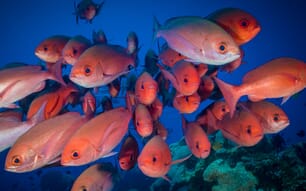In South Africa, the government has announced the finalisation of its Aquaculture Development and Enhancement Programme.
The programme aims to increase investments in the sector and help new entrants set up.
"The framework has discovered that limited access to finance and competition with other countries are two of the main challenges that threaten to inhibit the growth of the sector, which is still at its infancy stage in South Africa," said Rob Davies, Minister for the Departments of Trade and Industry.
Aquaculture is also being developed in Indonesia, where the Jakarta Globe reported that the government is developing aquaculture to boost its exports and to reduce the pressure on fish stocks.
In research news, leading Scottish life sciences firm Big DNA has announced that it is part of a European-wide consortium that has been awarded European Union funding under the 6 million Targetfish project.
This five year project aims to develop new aquaculture vaccines for economically important fish diseases.
Research undertaken by the Ben-Gurion University of the Negev (BGU), Israel, has developed a gene-silencing biotechnology that will help with prawn farming.
The technology changes the sex of prawns to the faster growing males, therefore increasing farm yields and income.
"The technology is sustainable, because it doesn't use any chemicals or hormones and does not create genetically modified organisms," said BGU's Proffesor Amir Sagi.
In Norway, there has been a breakthrough in lobster farming, which now sees the survival rate of lobster larvae doubled and in the US, a study has used zebrafish to find that probiotics can be used to help improve the growth and health of fish, a finding that will help fish farmers with larvae survival rates.
On the 4 December 2012, typhoon Pablo hit the Philippines, destroying P33.6 Million worth of bangus cages in Panabo's Mariculture Park. Despite the damage, Agriculture Secretary Proceso J. Alcala said that he expects the country to post positive agricultural growth figures for the final quarter of the year.
New Aquaculture Developments Helping Farmers Around the World
ANALYSIS - In this weeks news, new developments in aquaculture policy and research will help farmers around the world, writes Lucy Towers, TheFishSite Editor.
by Lucy Towers




